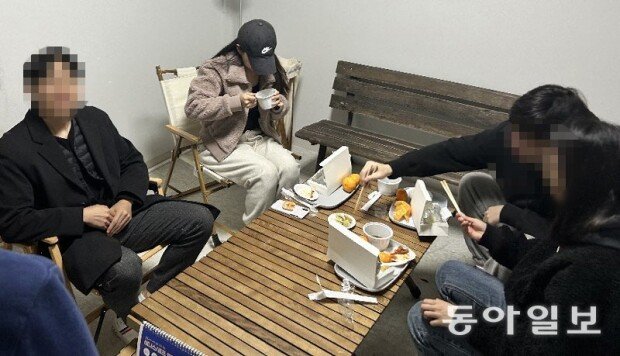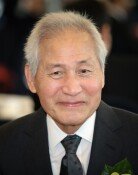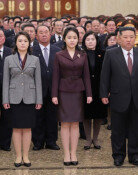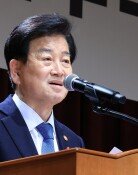Youth facing high food prices find support in community welfare centers
Youth facing high food prices find support in community welfare centers
Posted November. 15, 2023 07:53,
Updated November. 15, 2023 07:53

"My monthly food expenses skyrocketed to one million Korean won, a 50% jump from last year. Feeling financially strained, I now rely on free meals provided here.”
Han, a 31-year-old Korean office worker, shared his struggles while waiting for a complimentary evening meal at 7 p.m. last Monday at a church in Seoul’s Gwanak District. The initiative, 'Take a Bite,' by the district government welfare center, gained popularity among young adults for providing free meals such as stir-fried rice, seaweed soup, sandwiches, coffee, and fruit boxes for two hours every Tuesday evening. Han, appreciating the support, mentioned how the project is a lifeline for young individuals navigating single life amid rising prices. On that day, 17 people aged from their early 20s to mid-30s visited the church for the project.
Young adults in their 20s and 30s utilizing district welfare center services have no hesitations in benefiting from the free meals. While these projects traditionally assist those in need, such as recipients of basic livelihood support or the elderly without next of kin, they are increasingly embraced by the younger generation facing challenges due to high prices.
One interviewee mentioned leaving home to enjoy a free meal after a period of seclusion. Another, Han (28), attending for the first time, shared that he mustered the courage to visit there to save on food expenses after staying indoors for a while. He expressed the intention to visit more often, drawn by the warm atmosphere of the place.
Additional district projects, including the 'Shared Fridge' initiative by the Seoul Metropolitan Government through Seoul Youth Center, provide frozen processed foods for young individuals managing single households. This project offers one free frozen food item for each empty container of instant cooked rice every second and fourth Thursday. Kim (26), a college student, shared that he once received food worth 50,000 won in total and could save at least 100,000 won per month through container recycling.
Beyond offering free meals, innovative projects provide food ingredients and a cooking space, creating additional opportunities for young individuals to gather and interact. The "Eating Table Club," operated by an NGO in Gwanak District, allows people to convene in a shared kitchen, prepare their meals, and share them.
The shared cooking space is repurposed for relaxation or snacking during non-operational hours of the Eating Table Club. College student Jeong (22) travels by subway from Seocho District three to four times a week to cut down on food costs. He added that spending time with peers at the club helps alleviate his feelings of depression.
Experts emphasize that free meal projects not only provide economic support to young adults but also help prevent social isolation. Professor Joo Eun-seon from Gyeonggi University's Social Welfare Department noted that financial pressure can discourage outdoor activities, contributing to social isolation. She stressed the importance of ongoing support to help these young individuals, backed by such projects, in building and sustaining their communities.
o0@donga.com







